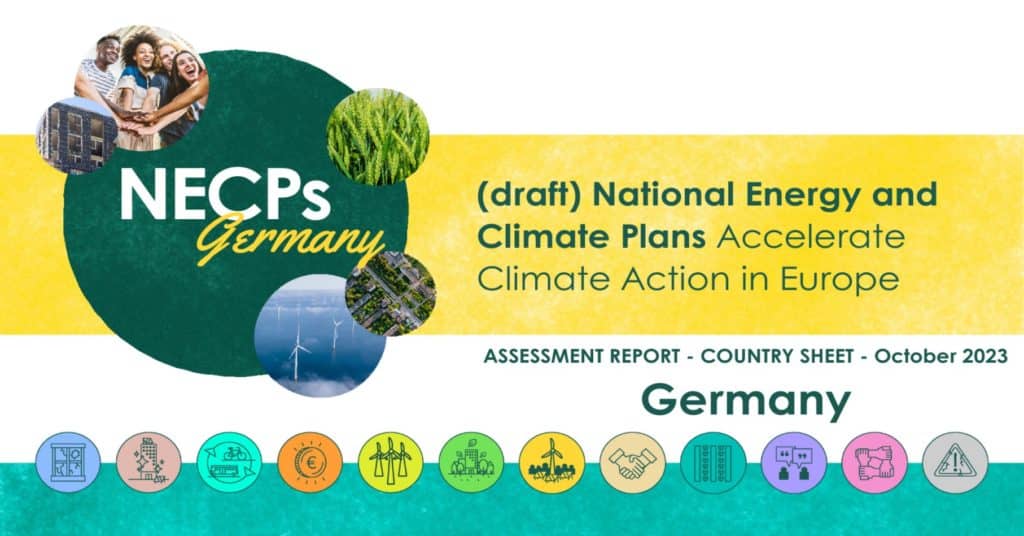German NECP
Germany rapidly accelerated the deployment of renewable energy, but it still didn’t unlock its full potential. The key is now to accelerate expansion, strengthening planning capacities in administrations, enabling conditions for tenant electricity and energy sharing. Germany finally needs a transport policy that is aligned with climate targets. The company car privilege for internal combustion engines must be dropped and the focus must be on rail instead of new road construction.
Click HERE to download the German draft NECP country assessment
Germany – climate action progress in figures
Check German implementation of its National Energy and Climate Plan
While the draft NECP update demonstrates an increased ambition compared to the 2019 version, it is based on a “scenario with existing measures” which, according to projections from the German Environment Agency, does not place Germany on a path to achieve 65% emission reduction by 2030 compared to 1990 levels and to reach climate neutrality by 2045.
In the best case scenario, current measures only allow Germany to reach 63% of emissions reduction by 2030 and 83% by 2050. EU targets for ESR emissions are not met, mainly due to a lack of measures in the transport and building sectors. Trajectories in energy efficiency lag behind EU ambitions.
Check the methodology behind the figures
Check the key findings the tracker reveals
Accelerate
The German National and Energy Climate Plan needs to provide measures to reach both the climate targets for 2030 and the goal of a climate neutral economy by 2045. At this stage, it’s very important to foster public participation in the plan drafting and to accelerate the transition starting from the transport sector.



